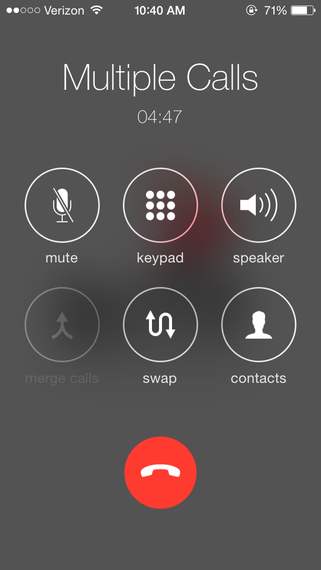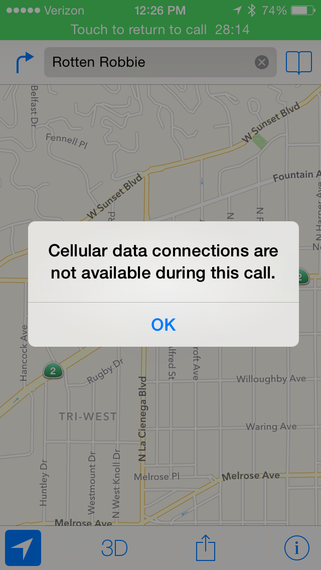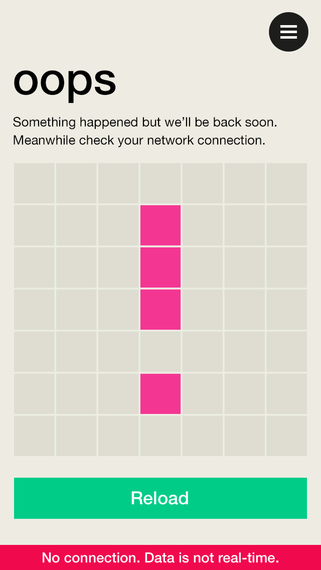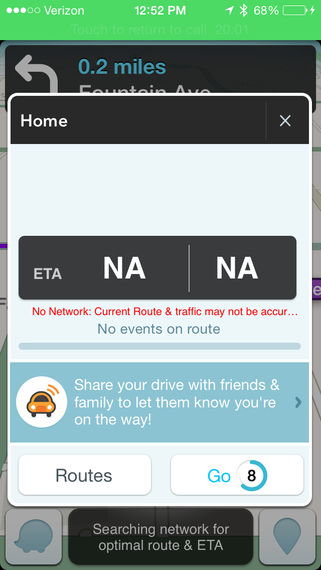
I am an enormous fan of Apple. Their harrowing story of near-bankruptcy in 1997 and subsequent recovery to become the most successful company on earth is nothing short of awe-inspiring. I firmly believe Apple's absolute commitment to innovation, quality and their users' experience sets them apart from other companies. It's their relentless drive to produce the best products possible, their obsession with the user's experience and staggering ability to manage hardware, software and marketing logistics that make them such an impressive and indomitable force.
But with the February, 2011 release of the Verizon-supported (CDMA) iPhone, something went wrong, leaving a huge blemish on Apple's otherwise stellar record that has remained unaddressed. Both the Verizon-and Sprint-supported iPhones have a glaring flaw: users cannot access voice and data information at the same time.
The Limitations
On the surface this might seem like a relatively minor issue. No new emails while on the phone? No big deal. Probably shouldn't be reading emails while on the phone anyway, right? But dig deeper and you realize how hobbled a smartphone is if it can't transmit data when it's being used for its primary function.
The CDMA iPhone is a constant disruption to the user experience. If you get a call while using the data connection, ALL data stops dead. No rerouting for missed turns or updated traffic. No iMessages. No email. No voicemail notifications. For any user this is an frustrating limitation, but for business users this can be a huge liability. Further, without a data connection all of the iPhone's amazing call management features are non-existent. There is no visual conference calling and the call conferencing is extremely limited. Worse, CDMA-network customers cannot conference more than two parties to a call, and even with two parties the conference only works if both were called by that user. Want to release only one of the callers? Nope. Want to put one caller on hold? Sorry. Want to see if a caller has dropped the line? It's just not possible.
Verizon's and Sprint's CDMA networks prevent the transmission of voice and data at the same time. It is this 1990s-era technology that is limiting the iPhones capabilities. This article gives a good overview of the issues with CDMA.
Why is it Apple's responsibility?
So why place the blame on Apple and not on the carriers? It is after all the carriers' CDMA networks causing the problems. Partly it's because we can't (and don't) expect much from the carriers. They have always felt more like the cable companies when it comes to customers service. They have consistently viewed iPhone users as high-data-usage problems that over-consume their networks' bandwidth, rather than the highly engaged and active users of their product that they are. We can't really blame Verizon or Sprint for not building a GSM network on top of their existing CDMA network to solve this problem. It is an incredibly costly, long and risky process to upgrade a nationwide network. So the responsibility falls on Apple who can and should fix this issue. My disappointment comes because we expect only the best from Apple. We have flocked to their admittedly pricey products because we know Apple won't compromise on quality and will not compromise the user experience. Until now. The Verizon/Sprint iPhone debacle is a huge contradiction to these principles. While this issue would be a problem for any brand, Apple's known and much-lauded obsession with quality makes the oversight even more jarring to long-time users.
What could Apple do about it?
The most obvious solution would be for Apple to add a second antenna to support SVLTE or SVDO. The additional antenna allows two connections to the CDMA tower, one for voice and one for data. Verizon and Sprint requires other carriers to support SVLTE on their phone but doesn't require it of Apple. This second antenna is why Samsung and other phones have simultaneous voice and data on Verizon/ Sprint networks.
It could be argued that this additional antenna would increase the size and weight of all iPhones just to accommodate two groups located only in the United States. But, "[t]he U.S. continues to be the largest telecom market in the world and is expected to grow faster than most other developed countries to a total of $721 billion by 2015, or 3.7 percent every year." Since Verizon and Sprint have more than 100+ million mobile customers in the US, these are two very large and extremely significant groups.
AT&T's Missed Opportunity
I have to wonder why AT&T isn't capitalizing on the issues with CDMA. Verizon has repeatedly pounded AT&T about the issues that plague a GSM network, especially dropped calls. In a market where carriers are quickly being commoditized, this is an enormous opportunity for AT&T to negatively influence consumers. Highlighting a real and sustained weakness with Verizon and Sprint networks, and specifically targeting iPhone users could be a huge conquest for AT&T, and we wonder why they've let the chance pass by. The data/voice disconnect is a terrible user experience, crippling the iPhone and constantly reminding the user of all this things the iPhone can't do.
iPhone 6 fix?
I don't mean to imply that this is an easy problem to solve; the iPhone supply chain is an absolute marvel. I'm sure there are enormous technical and logistical issues with adding another antenna to CDMA iPhones. But complications or no, Apple should address the issue to shore up a major weakness between iPhone and Android. This issues has a known fix and Apple should do everything to ensure their products work optimally for all their consumers. With the iPhone 6 rumored to being release on 9/25/14 I have some hopes that Apple will bite the bullet and do the right thing for millions of its CDMA users on Verizon and Sprint. That said, I have hoped to see this change in the last three iPhone releases and have been disappointed each time.
Joseph Farrell is EVP of Operations, BiTE interactive



